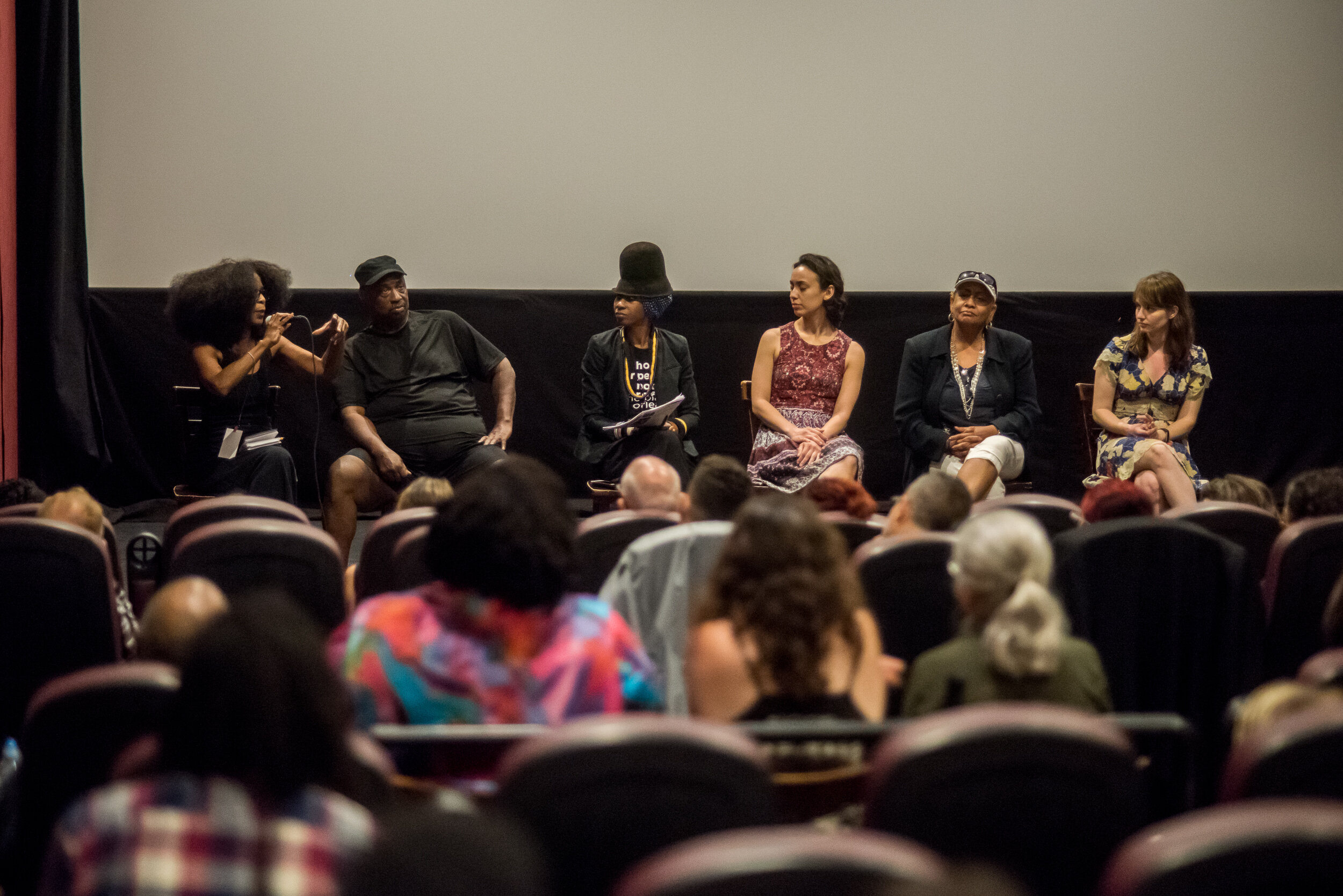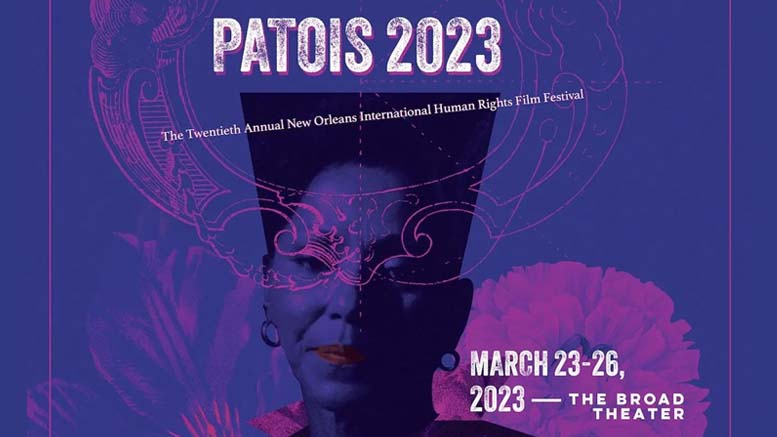By: Alyssa Cohen + Alexa Langlois

Since 2004, Patois: The New Orleans International Human Rights Film Festival has dedicated itself to supporting local artists and activists in the New Orleans community. Existing at the intersection of art and social justice, they aim to provide a forum for artistic expression that is politically engaged and socially active. This year’s Film Festival took place the weekend of March 23-26th, 2023, at the Broad Theater. It featured a selection of works, including The American Dream and Other Fairy Tales: A Family Story About Racism, Low-Wage Workers, and Corporate Power at “The Happiest Place on Earth,” Angola, Do You Hear Us?: Voices From a Plantation Prison, Give Light: Stories from Indigenous Midwives, and more. Since their inception, they have hosted hundreds of films, from both local and international artists, covering a wide range of issues, addressing each one with the same level of awareness and respect. However, the festival is not exclusive to films but includes a selection of musicians, poets, and panelist speakers, all of whom help curate a space in which voices from various life experiences can come together harmoniously.
The name “Patois” itself refers to the umbrella term for any non-standard language, specifically regional dialects or other unofficial languages. It can also refer to pidgin or creole and was often used in a derogatory manner to hierarchize English speakers. While the terminology has been leveraged against many different marginalized Black and Brown communities, it is now used in this context as a badge of pride and support; and its reclamation as a means to address decades of discrimination and oppression faced by these groups, carrying their legacy into their present social justice work. I was fortunate enough to speak with Patois Festival Director Emily Ratner, who provided insight into the significance behind the program’s naming.
 “We chose the name ‘Patois’ because, in our view, the Festival curates spaces in which there are a lot of different influences in the language that we speak. So, people are coming from a variety of life experiences, they’re bringing all kinds of expertise, they’re using different media; such as visual arts; such as organizing, such as film, or music, or poetry, live performance…and so, I think the name “Patois” expresses this idea of intersectionality within the work that we’re highlighting–and the various different media through which that work is communicated.”
“We chose the name ‘Patois’ because, in our view, the Festival curates spaces in which there are a lot of different influences in the language that we speak. So, people are coming from a variety of life experiences, they’re bringing all kinds of expertise, they’re using different media; such as visual arts; such as organizing, such as film, or music, or poetry, live performance…and so, I think the name “Patois” expresses this idea of intersectionality within the work that we’re highlighting–and the various different media through which that work is communicated.”
Ratner became involved with Patois–which, at the time, was named The New Orleans International Human Rights Film Festival–in 2008 when she saw an opportunity to apply her own skills and expertise as a criminal defense attorney to amplify the voices of the many marginalized groups that rely on such spaces to be heard. According to Ratner, art provides us with the tools we need to confront power inequalities. Art as a medium is one that is uniquely positioned to challenge people’s attitudes and preconceived notions of a particular issue in a way that is both engaging and incubates new thoughts and ideas. It also has the ability to appeal to people’s emotions and experiences, by acting as their guide through the narrative, while also leaving room for critical reflection and personal interpretation. Art can also be universal, in that it can transcend language, cultural, and geographical barriers.
 “Art feels important to me because art provides us with visions of what is possible. And so, to me, it’s like the dreamers and schemers who show us the world we could live in. And then, those of us who maybe don’t have that level of imagination, that gives us ideas about where we can go, what our dreams should involve, and how we might get there.”
“Art feels important to me because art provides us with visions of what is possible. And so, to me, it’s like the dreamers and schemers who show us the world we could live in. And then, those of us who maybe don’t have that level of imagination, that gives us ideas about where we can go, what our dreams should involve, and how we might get there.”
The Patois Film Festival has come and gone for 2023, but its audience was left with not only a stronger sense of empathy and awareness for the groups around them but of newfound excitement for the possibilities brought to life by these powerful storytellers. To support, volunteer with, or donate to Patois, you can visit https://www.patoisfilmfest.org/support or learn more at https://www.patoisfilmfest.org/.
 NOLAbeings Multimedia artist Claire Bangser created NOLAbeings as a portrait-based story project that marries...
NOLAbeings Multimedia artist Claire Bangser created NOLAbeings as a portrait-based story project that marries...  Voodoo in New Orleans: Reviving history: New Orleans fortune telling This article takes a deep dive into the history of Voodoo in New Orleans, its hybridization with Catholicism, and its present-day place in the city's culture. The author visits fortune-tellers in the French Quarter, using their guidance as a tool for introspection rather than a deterministic predictor of the future. Through her experiences in New Orleans, the author feels a mystical connection to both the past and the future.
Voodoo in New Orleans: Reviving history: New Orleans fortune telling This article takes a deep dive into the history of Voodoo in New Orleans, its hybridization with Catholicism, and its present-day place in the city's culture. The author visits fortune-tellers in the French Quarter, using their guidance as a tool for introspection rather than a deterministic predictor of the future. Through her experiences in New Orleans, the author feels a mystical connection to both the past and the future. 